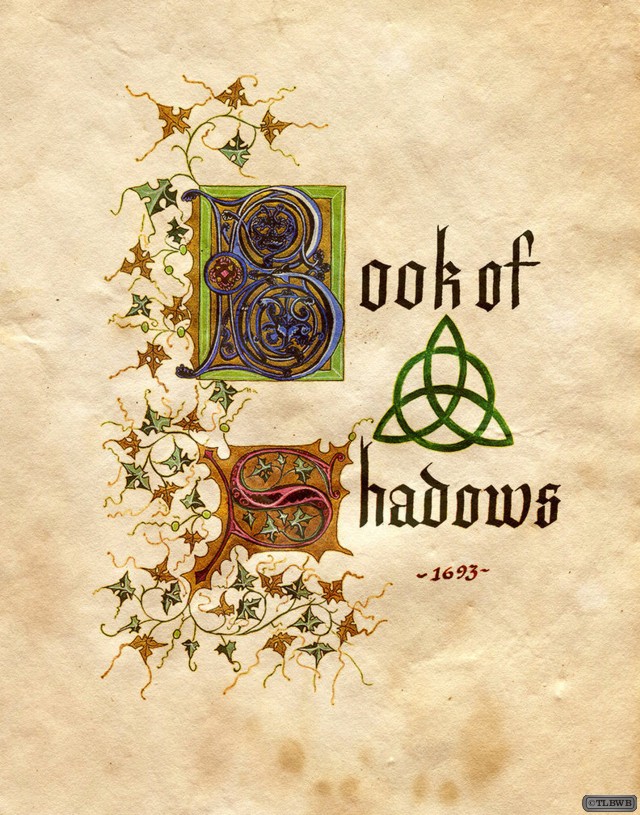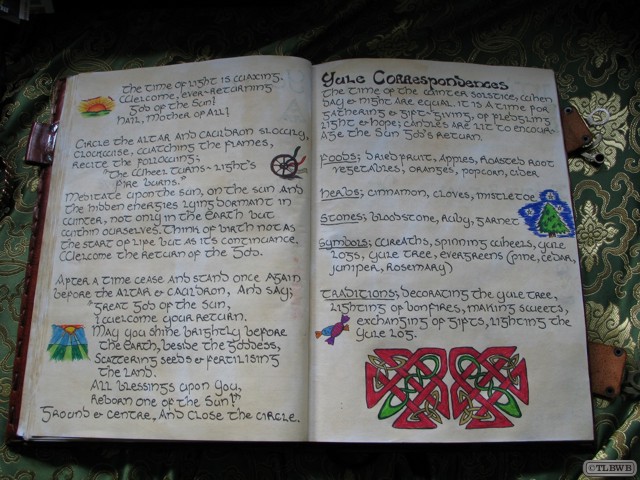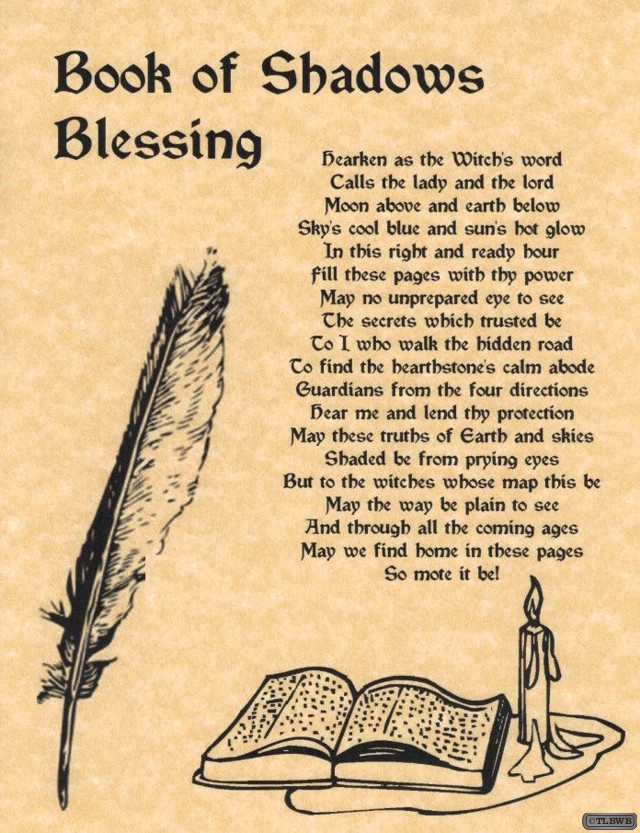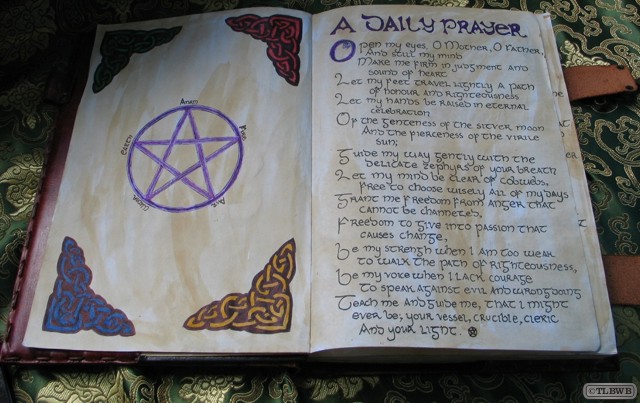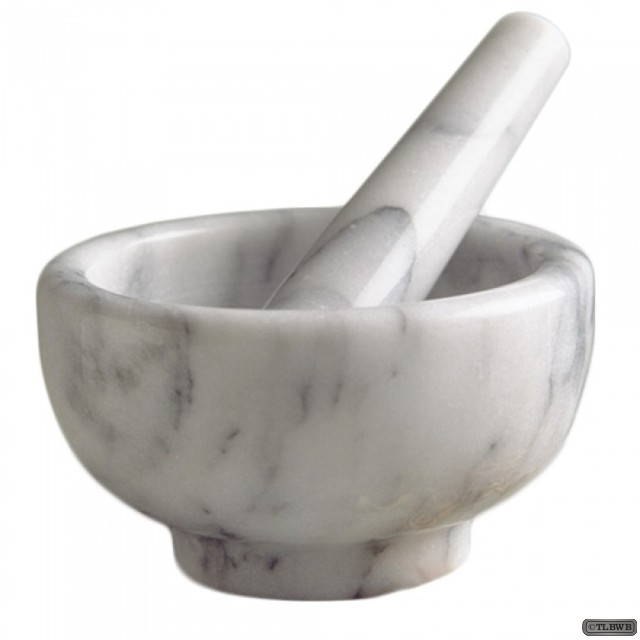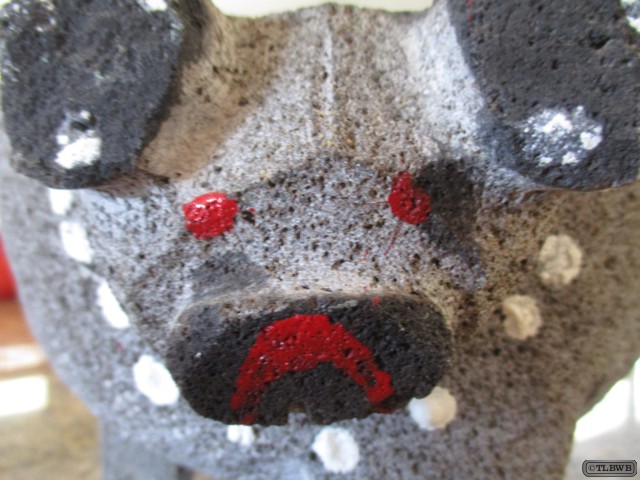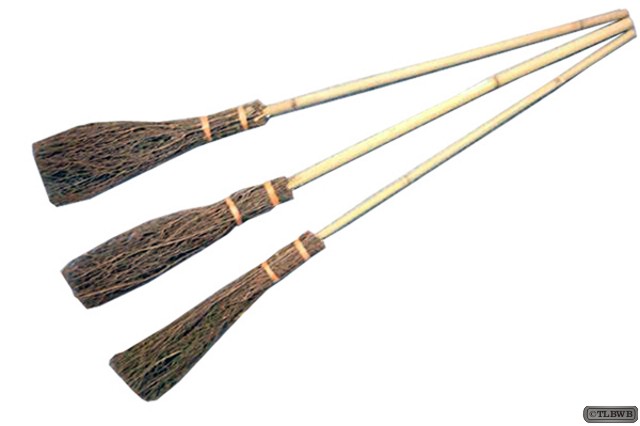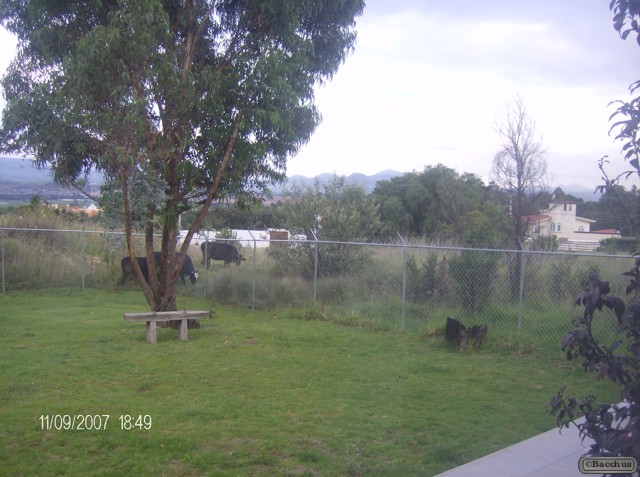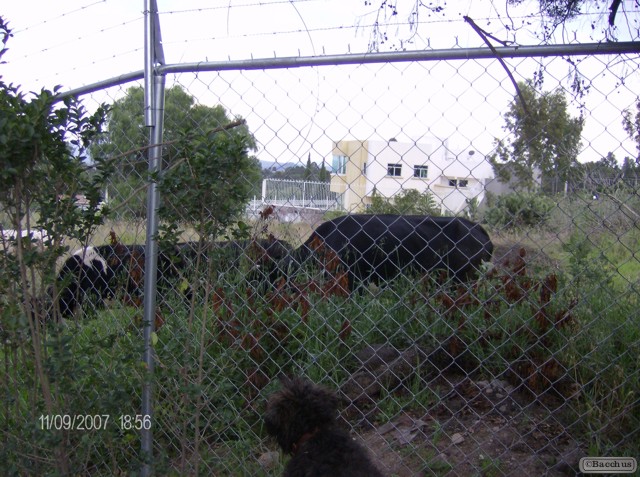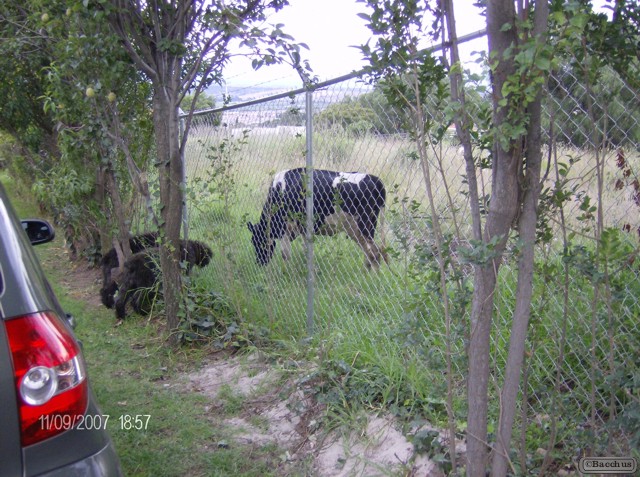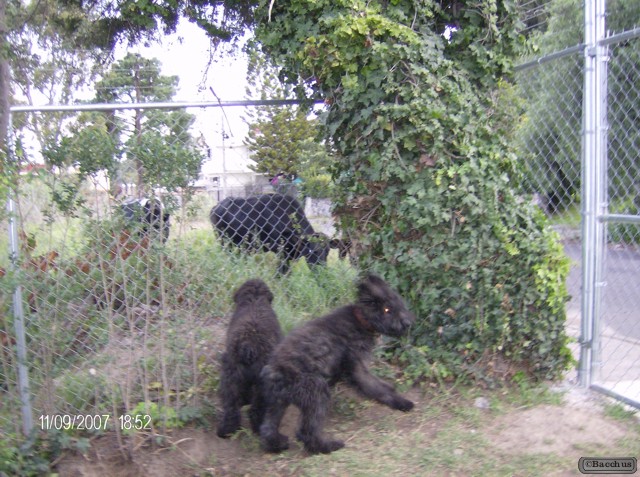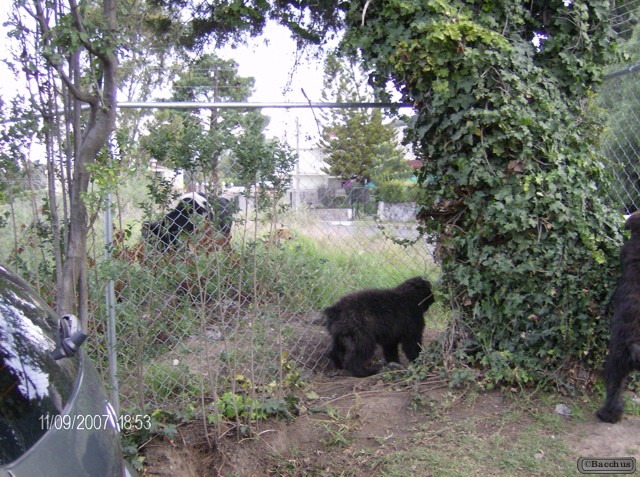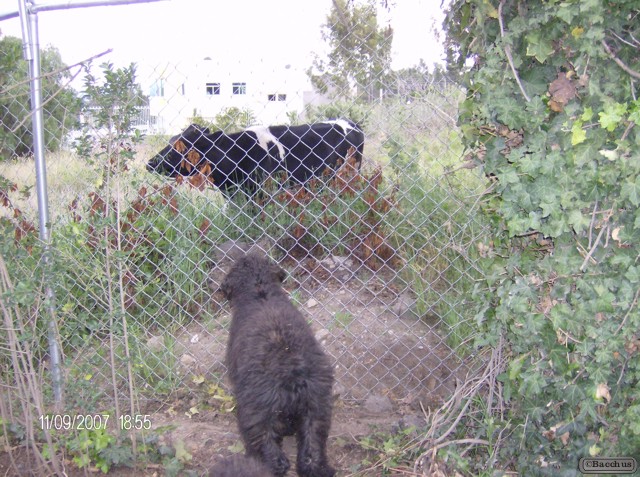Chapter 13
Lynor guided Ludger through the forest. By nightfall they were halfway to Elvanor. Ludger was in awe of the majestic trees of the forest. They stood widely separated at the base, but their crowns were touching high overhead. This left the travellers in a constant penumbrae, with the occasional shaft of sunlight coming through. Ludger felt that he was driving inside a giant cathedral, with living columns supporting the ceiling. The further they went in, the less snow was present. By nightfall the last vestiges of winter had been left hours behind. They set camp on the spongy soil. Dregnar lit a fire to chase the coolness of the evening. Lynor explained.
“The closer we will get to Elvanor the warmer the temperature will be. The spell protecting the capital also maintains its temperature to a constant 75oF all year long. The city is always green and comfortable without any extremes of temperature.”
Ludger silently called Bacchus to him, as they revelled in stories from Lynor and Balnor. He looked down at his dog and silently asked.
“Do you like it here?”
“I feel even better here then when we were at home.”
“I noticed the same thing myself. This is truly a magnificent place. I almost wish we could stay here and forget about Magdar and all the fighting. I never expected that we would have to constantly fight for our lives.”
“Why don’t we? We have done enough for them. All I want is a warm place by the fire and a good hunt occasionally. As long as there is food and someone to pet me, I would be in heaven.”
“You dogs are all the same. As long as you are fed and cuddled, you don’t care about anything else. But it is my duty to help these people because I fear that even here Magdar will eventually extend his influence.”
“You humans are all the same, you cannot forget about duties and such. You can’t revel in the simple pleasures of life with a clear conscience. You are truly an inferior species.”
With this, Bacchus closed her eyes and promptly fell asleep on his lap. Ludger grinned broadly and admired the narrow-minded philosophy of his dog for its utter simplicity.
The next morning they made an early start. By midday they had reached Elvanor. Ludger stopped the Samurai at the edge of the clearing where the colossal tree-city stood. The squat tree of titanic breath stood with sunlight streaming through its enormous branches. Portals were opened amongst it gnarled roots. A colourful array of elves was milling through them. The canopy of the tree was full of multi-coloured family dwellings.
Lynor pointed to one of the portals. Ludger slowly advanced in its direction. He had never seen anything so utterly amazing in his entire life. He was driving with his face glued to the windscreen. As they approached the foot of the colossus, a crowd of cheerful onlookers gathered around the truck. Ludger was forced to slow down to a crawl, to prevent any injuries. Tall elves in green and crimson guard uniforms parted the crowd in front of them, to permit their entrance into the tree-city. They were escorted to a high ceiling room, that was quickly cordoned off by more guards. A youngish looking elf in tracker’s greens joined the guards. With a smile Lynor pointed to his younger brother, Prince Symor.
They exited the confines of the truck and were warmly greeted by Symor. Introductions were made and concern was showed for Lynor’s ankle. He declined any help for the long walk into the city. They followed Symor up a long staircase carved into the bulk of the tree. As they went the young Prince explained the layout of the city.
“Underground and at forest level are mostly storage, heavy industry and stables. Further up there is two levels of commercial bazaars and tradesmen shops. They are followed by a few levels of communal accommodations.”
They reached a large esplanade at the level of the first branches. Symor continued.
“These lower branches are also used for communal living. Further, in the periphery of the canopy are the family dwellings of the upper classes and the rich merchants. Also the nobles of the court reside there. The royal palace is in the centre.”
At the core of the canopy stood, in the delicate interweaving of smaller branches, the royal palace. To Ludger it looked like a delicate bejewelled piece of lace all festooned by greeneries. It was surrounded in the thicker branches by the elven institutes of higher learning. What made the scenery more beautiful was that it was all composed of the living tissues of the tree-city. A glorious architecture had evolved, it was part art, part science and part life itself. The smoothly flowing organic curves of the city could never be duplicated out of man-made materials.
They passed through a serene reflective garden. They reached a delicate archway leading to an ornamental pool, in the centre of which stood a graceful gazebo. A narrow bridge connected the gazebo to the garden in which they stood. One by one they crossed the bridge. They were ushered into the gazebo-cum-audience room. In the airy structure, made out of weaved branches, stood or more accurately grew, out of a dais, twin thrones on which were seated a tall handsome couple of regal bearing. To their right was seated Princess Nathalia, their guest of honour.
Nathalia was staring at Ludger with a cold, calm look with a touch of resentment thrown in. Ludger returned the stare and slowly examined her. Her face had the exotic beauty of a high fashion model. Wide set green eyes, high cheekbones, a delicately chiselled nose and a wide, lushly lipped, sensual mouth. Her dark red hair had a metallic sheen to it. It was brushed straight past her shoulders.
She was dressed in a shiny black, sleeveless sheath, that was moulded to her athletic body. She had strong shoulders and long powerful hands. Her breasts stood proud and upthrust against the shiny fabric. A long slit down one side of her dress revealed a tantalizing glimpse of a long, muscular thigh and a shapely calf.
Ludger turned his attention to the royal couple. They were dressed in identical long gowns of white silk. A thin band of gold circled their high forehead. Ludger was somewhat self-conscious dressed in dirty battle stained clothes, his chainmail covered body bristling with weapons. He felt like a barbarian invited by mistake to high tea at the Queen’s.
He was brought back to reality by Lynor whispering to him, to state his case to the King. Ludger stepped forward, cleared his throat and declared in a clear voice.
“Your Royal Highnesses, I am Ludger of the Mist of Dream, special envoy of His Royal Highness King Arexis of Talenthar.” As she heard this, Nathalia’s face was lit by a broad smile. All the coldness evaporated from her eyes. Ludger continued. “The reasons for my presence here are twofold. First, I was to make sure that Her Highness, Princess Nathalia, was safe and sound.”
He turned toward Nathalia and continued.
“I am pleased that she managed to reach Elvanor unscathed. Her brother and I are deeply relieved.” He turned back to the King. “Second, I am to request, in the name of King Arexis, your help against our common foe, Magdar.
Two week from tomorrow morning at exactly 06:00, the combined forces of King Arexis, from the east, and of Kurden McNish from the northeast, will launch an attack against Magdar’s army in front of the Gates of Dooms.
King Arexis would appreciate it if you could form the third prong in the assault, by sending some soldiers from the south. Also I will need a guide to the Mist of Dreams. I will fetch some special equipment that I need to cross the Plains of Ice, on my way to the Great Dam. I am intent in destroying its lock and releasing the flow of the river.”
Ludger bowed his head and stepped back into the awaiting group. The King looked at him with gentle eyes and said.
“My dear Sir Ludger, I see that you have travelled a long way to reach us. You should rest until tomorrow morning. We will meet at 10:00 and I will give you my answer. In the meantime enjoy our city. My son Symor will show you to your quarters.” He saluted with a nod and continued. “Now I will talk with my son, Lynor.”
Symor took Ludger by the elbow. He led him out of the audience room. Balnor, Dregnar and Bacchus followed. When they reached the other end of the reflective garden, footmen took charge of Balnor and the troll. They were escorted toward the university. Bacchus looked at Ludger, then at the troll. She then ran to catch up with Dregnar.
Ludger shrugged his shoulders and followed Symor into the middle of another garden. A large branch emerged from the middle of a circular meadow. Steps were carved on its upper face. They gently rose to a tree-house that grew out of the branch amongst a canopy of leaves. Ludger followed the Prince up the stairs. They entered the small house. Ludger’s possessions were neatly arranged against one of the walls.
All of the main furnishings grew out of the smooth rounded surfaces of the room. They glowed from the polished, light coloured wood. Ludger pointed to the large bed. He asked Symor.
“How do you make furniture grow out of the floor, or for that matter a house grow out of a branch?”
“It is all done by selective pruning and training, aided by our special brand of magic. Our priests and gardeners can make our tree-city grow into any useful shape. All that you see is not carved or machined out of the wood, it is grown that way. A chair is grown then harvested for use.”
“This is amazing.”
“Our city is the repository of the countless souls of our past Kings. It is alive. Even the plumbing are done via the trees own circulatory system.” He pointed to a doorway at the far side of the room. “Behind that door is the washroom. Food will be brought to you around 19:00. Feel free to visit the royal gardens in the meantime.”
Symor left him alone in the room. Ludger slowly removed his weapons and his chainmail. He undressed and walked into the washroom. He stepped into the shower and luxuriated under the powerful stream for a long time. He looked at himself in the mirror, as he dried himself with a thick towel. He was in better physical shape than he had ever been, but his body was covered by an amazing patchwork of bruises. He brushed his hair and beard. They were getting longer than he had ever let them grow. They gave him a certain primeval look, shades of the barbarian, again.
He rummaged through his bags and found a light cotton pullover and a pair of thick sweat pants. He pulled them on and slipped into a pair of leather soled moccasins. He left the house for a stroll through the wonderful gardens. He was soon joined by a rather short elf, dressed in a red felt outfit.
He introduced himself as Professor Meldor. He walked silently with Ludger for a while. He then hesitantly said.
“I was meditating yesterday and was contacted by my friend Andrack. He told me to expect you and to help you with your meditation exercises.”
“It is very nice of you to offer your help. I was wondering why I felt so much at ease in this city? Could it be that I am more in sync here, or that this place’s make-up is close to my own world?”
“The aura of this city is probably close to that of the part of your world that you have brought with you. You should try to visualize the auras. I will help you with the procedure.”
They sat down on a park bench and Meldor continued.
“You first have to achieve transcendence. Then you concentrate on the essence of an object or a person. Then you visualize it. It will be expressed by different colours.” He reached into his pocket. “Here are a few objects of different manufacture. This piece of silver was forged and engraved by the dwarves. This small obsidian amulet was given to me by Andrack. This iron star was forged by black magic. The amulet around your neck was made by me.”
Ludger removed the small piece of carved jade from around his neck. He gave it to the elf. Meldor placed the four small objects on the wooden bench between them. He then said.
“Now please vacate your mind.”Ludger sat cross-legged on the bench, facing the elf. He concentrated. “When you reach the third stage, concentrate on the essence of the objects. Visualize the objects and their essence around them…. Now open your eyes and look at them.”
Ludger slowly opened his eyes. He looked at the collection of small objects laid out in front of him. The small piece of silver was shining bright red, the jade had an emerald glow, the obsidian was in a milk-white cloud and the iron star was lost in blackness. His own arm was glowing a brilliant blue. He let his concentration wane and the auras soon faded. He discussed the process with Meldor for an hour. They then parted company.
Ludger resumed his aimless walk through the gardens. He heard the sound of a scuffle coming from behind a high growing hedge. He rushed to an opening in the shrubs. He was greeted by the sight of Nathalia and a short, round faced, blond haired girl practising a form of martial arts.
They were both dresses in identical outfits consisting of white tights and matching loose fitting tank tops. The short haired girl, which he assumed was Maria, was fighting a studied and concentrated bout that she was easily leading. Nathalia had great spirit but was fighting with her heart, not her mind. She was more often than none putting herself in trouble with her wild attacks. Ludger observed with great interest until a break in the action.
He said with a grin, startling the girls in the process.
“Your Highness, you should not attack wildly like you do. You leave yourself open for a counterattack. Use your mind, analyze your opponents then use their powers against them.”
Nathalia replied with a shriek.
“You, like all of my teachers, want me to fight like a woman, delicately. I want to fight like a man, and prove myself.”
“You can fight properly and survive in combat, or, as you say, like a man and end up a dead woman. Let me show you.” He bowed to them. “Would you please attack me, you and your friend.”
Ludger prepared himself. As they launched themselves at him, he used fluid movements to counter their attack and redirect their power. They tumbled away from him time after time. During all this he kept instructing them. After a time they took a break and sat on the lawn. While the women were catching their breath, Ludger, fresh as a daisy, said.
“As you both have just experienced, fighting with discipline can be very effective. It might be less exciting and the romance of fierce combat may be lost, but you will survive to fight another day.”
As he continued his lecture, his concentration was put to a supreme test by the closeness of the two young women’s glistening bodies. Just as the sight of their bouncing breasts under their thin camisole had distracted him during combat. He realized, as they were talking, that the only thing that he really missed from his world was his tri-weekly sessions with his sensei, Master Yakumi. Strangely enough he had not thought about the most important person in his life, his old Master, since he had entered this world.
Ludger had been orphaned when he was eight. His uncle and aunt raised him. They were always travelling and did not have all the time they should have given him. They soon realized that the boy needed direction in his life. They enroled him in Master Yakumi’s school. Ludger had been studying under the care of his sensei since then. His mind drifted back to the philosophical and technical discussion at hand.
He stood up and sparred with Nathalia. She had learned quite a bit, but was too often tempted by heroic manoeuvres. During such an attempt he flipped her over his side with a simple hip movement. He followed her fall and ended up straddling her midriff holding her wrists in his hands. He looked at her straight in the eyes. He lowered his head until their foreheads almost touched. He said to her in a stern tone.
“Your Highness, if you remember only one thing from today, please do not fight so often with your heart, use your head. I have a feeling that one day it might mean the difference between your life and death. It might buy you enough time to use a mistake of your opponent to your advantage. Please listen to me.”
A deep voice coming from the edge of the clearing startled them.
“Your Highness, please listen to this man, he knows what he is preaching, for your own sake.”
They quickly scrambled back to their feet. They came face to face with a tall, strongly built elf. He introduced himself as Keldor, King Valnor’s Chief-of-Arms. Nathalia stormed, furiously, out of the enclosed meadow. Maria followed chuckling softly. The Princess obviously did not like to be disgraced in front of an audience.
The tall elf looked inquisitively at Ludger and said.
“What is the trouble with the young lady?”
“She does not like loosing a fight.”
“You have learned much from your sensei, Master Yakumi. He would be proud to see you teach. You have done well.”
Ludger replied with disbelief.
“How do you know about Master Yakumi? I have not told anyone in this world about him.”
“It is a long story. Over twenty years ago, when Magdar started to play with black magic. King Valnor was afraid that the balance of powers in the universe could be ultimately affected. Some of our best teachers searched the universe with their mind, using meditation, looking for other entities that could respond to our alarm. A few minds were reached. They were advised to prepare for an eventual disturbance in the fabric of the universe. Nothing specific was envisioned but our plea was heard.
Your sensei was one of those few minds that were reached, He told me that he was training a special student for such an eventual fight. I am glad that faith has brought this student to us.”
“Are you telling me that I have been trained for this fight all of my life?”
“Not for this specific battle. But in general terms you were moulded to respond well to the challenge at hand. When Andrack unwittingly brought you to our world, you could not have been better trained to respond effectively.”
This news shocked Ludger. The elf continued.
“Would you like to meet your sensei? I could try to bring his essence into me. You could train with him while I meditate.”
Ludger mumbled.
“Of course I would.”
The elf sat crossed-legged on the ground. He extended his arms to the sky, then clasped his hands high above his head. He brought his hands to the level of his chest. He started to chant in a strange lilting tongue.
Ludger followed suit and sat in front of the elf. He achieved transcendence. He concentrated on Keldor’s aura. At first it was bright green, then it slowly changed to a shade of blue that was growing deeper by the minute. Keldor’s shape started to waiver. It reduced to the shape of an elderly japanese man.
Master Yakumi opened his eyes. And exceptional smile brightened his face when he saw Ludger. He looked around and took in the strange surroundings. He said.
“It is good to see you, Morton san. I have been told that you have been doing well in this world. You have been erased from our own. Not a trace of your presence in our world remains, except in my heart.”
“It is good to see you too. Your lessons are the only things that I really miss from our world.”
“Then we should proceed.”
Master Yakumi touched his forehead to the ground. Ludger did the same. They stood facing each other and bowed their heads. They started an elegant ballet with a deadly purpose. The two men fought like they never had. Ludger was holding his own better than usual. At the end of the fight he managed to pin his sensei for the first time in the more than two decades they had been together.
Ludger helped him up. They bowed. As was common practice after their sessions, they sat cross-legged in front of each other and discussed the fight. After a while the talk wound down. Master Yakumi continued.
“You realize that now that you have defeated your sensei, student must become teacher, himself. I wish you good luck. Keldor assures me that we can meet again, when you come back to visit him. I am proud of you, Morton san.”
Yakumi bowed until his forehead touched the ground. Ludger did likewise. After his sensei’s shape filled up to Keldor’s he realized, for the first time since he had entered this world, that he was here to stay. When he straightened back up, tears were rolling down his cheeks.
He thanked the elf master, stood up and bowed. He silently walked back in the general direction of his quarters. When he left the hedged meadow, he saw from the corner of his eyes two furtive shapes disappear. He did not pay any attention to them. His mind was a nest of conflicting emotions and ideas. He ran into Dregnar who was out walking Bacchus. The troll inquired.
“Master Ludger, what is wrong? You look ill.”
Ludger forced a smile.
“Nothing, Dregnar, I have just finished a long workout and I feel very tired. It should pass after I take a long shower.”
The troll did not insist, but Bacchus did not let this pass. She gave him a long look. She communicated sarcastically to him.
“From the look on your face I figure that you have finally realized that we are here to stay. Come on, its not that bad. The food is great, there is always a nice fire to relax in front, the females of your species seems to find you attractive. So what if we have to fight once in a while to earn our keep. It is better than working in that smelly city, in that noisy office of yours and… I saw that Princess, the fringe benefits are much better here.”
Ludger patted his dog on the head. With the attention span typical of her species, she ran after Dregnar, who had continued his walk. Ludger shook his head and muttered to himself.
“She might be right… she might be right. But why have I inherited a dog with aspirations of becoming a philosopher?”
When he reached his tree-house, he rapidly climbed the stairs and went in. The first thing that he noticed was that his clothes had been cleaned and were laid out on his bed. He found his boots, well polished in an alcove behind a curtain. His chainmail and sword seemed to glow in the shadow of the closet. He put away his clothes, took a fresh tracksuit from his luggage and went to take a shower.
When he emerged, refreshed, from the washroom, a young maid was serving dinner on a table, by a window overlooking the gardens. Some crisp vegetables, an exotically spiced cut of meat, bread and cakes were laid out on a pewter platter. A bottle of deeply coloured red wine and a fine crystal glass accompanied the food. The maid ceremoniously bowed and left the room silently.
Amongst the objects laid out on the table was a slim volume entitled: THE WORLD ITS AURA AND YOU. An essay by Professor Meldor of Elvanor University (E.U.). Ludger smiled and put the book on the table for later reading. He sat down and proceeded to do justice to the meal.
His dinner was interrupted by a soft knock at the door. He uttered in a loud voice.
“Come in.”
Maria entered the room. She was a sight to behold, dressed in a short toga of thin white cotton. Ludger could clearly see the dark buds of her nipples through the gossamer thin fabric. Maria looked down at what he was staring at. When she realized what it was, she blushed sheepishly. Ludger turned away and said in a shaky voice.
“Ergh…, to what may I warrant the pleasure of this visit.”
“Master Ludger, my Mistress -Princess Nathalia- formally request your instruction in the martial arts. She would be glad to start her first lesson tomorrow morning at 07:00, in the meadow where we met today, if you would so agree.”
“I would be delighted. Will you be joining us for the lessons?”
“No, Sir. Princess Nathalia wishes to be instructed alone….” She hesitated and continued in a lower tone. “Please Sir, be nice to her. Behind that braggadocious façade there is a vulnerable young woman that is ill at ease with herself. She does not know if people respond to her because she is a Princess or because of her true self…. I am sorry, I have said too much…. Please do not tell her what I have told you. Forget I said anything.”
With that she turned and bolted out of his room. Ludger caught a glimpse of her shapely rear end as she ran down the stairs. He did not know what to make of the visit, or what had prompted Nathalia to request formal lessons. She had not seemed too thrilled with the idea, during their bout this afternoon, especially after Keldor had interrupted them. Since he could not answer these questions, he instead finished his meal.
He brought the bottle of wine to the table were he had left the book. He got himself a cigar from his case. He installed himself comfortably and lost himself in the philosophical essay. After the sun had long been set he decided to retire for the night.
*
He awoke at 05:30. For the first time since he had been in this world, he performed his morning meditation and exercise routine, that Master Yakumi had designed for him ages ago. He vowed never to forget the combination of stretches and katas ever again.
Ludger entered the hedged meadow promptly at 07:00. Nathalia was there waiting for him. She greeted him with a warm smile. They sat cross-legged in front of each others and Ludger explained the philosophy of the Arts. After the preliminaries they started with basic exercises. They proceeded to actual short bouts. The lesson ended at 09:00 on a formal note. They each went their own way.
Ludger returned quickly to his room to wash up and get properly dressed for his audience with the King. Shortly before 10:00, as he was hanging his sword over his shoulder, Prince Symor came in to escort him to his father.
The joined the King in the gazebo. Valnor received him in a more informal setting. He was seated at a side table and invited Ludger to join him. Servant brought them some tea. After they departed the King started.
“Dear Mister Morton, I hope that you have enjoyed our hospitality. I had a long talk with Professor Meldor and Master Keldor, this morning. From their accounting I warrant that you are a brave young man lost in a strange world. But it also seems that you have been unwittingly trained for most of your life, for such a situation.”
Ludger was about to interrupt, but Valnor silenced him with a gesture. He continued.
“Due to the grave situation at hand, and the possible ramifications of Magdar’s attempts at controlling this world, I have decided to grant you my help. A battalion of Royal Long-Bowmen will participate in the attack on the Gates of Doom at the appointed time. Last night I talked with your friend Balnor. He confided in me your plan to destroy the lock of the Great Dam.
I find that campaign of yours very foolhardy and with very little chance of success. But only you can know if your technology can produce the results that you have claimed. Like surviving and crossing the Plains of Ice, climbing the tall cliffs in the Valley of Perils, or destroying the actual lock. The only major flaw in your thinking is that you will not be able to orient yourself properly in the featureless icy desert.”
Valnor let the thought sink in. Ludger felt somewhat foolish at not having thought of that. Before he could say so, Valnor continued.
“To help you in this endeavour, we will bestow upon you an honour that has never been given to anybody not of elf blood. We will give you the power to communicate with the elders of the forest. This will give you our gift of orientation. We feel compelled to do so because your presence in this world is partly our fault.”
“I do not know what to say.”
“Shush…, nothing has to be said. We are honoured to help you. Please come with me.”
Valnor stood up and took Ludger’s hand. He brought him to a small clearing on the far side of the gardens. In the middle of the clearing was a semicircle of shrubs surrounding a low wooden platform growing out of the soil. Ludger was told to sit on the platform. Valnor stood at his right with his left hand on his shoulder. Queen Juniper joined them and stood on his left with her right hand on his shoulder.
A procession of officials, led by Professor Meldor, entered the clearing. Meldor instructed Ludger to concentrate on his own aura. Ludger concentrated and rapidly basked in the earthy blue of his aura. Chants rose slowly around him, remembrance of wind passing through foliage. A tall emaciated grey haired priest stood before him. The King and his Queen turned to face each others, still keeping him in their embrace. Their glowing emerald aura was touching his own cerulean one. Touches of white and ruby were streaking from his chainmail.
The priest took the Monarchs’ free hands and pressed them together. As contact was made, a large flow of energy coursed through Ludger’s body. It was as if a large door was opened and he was witness to an ongoing conversation held by millions of voices. The disorienting chatter soon faded to the background. A deep serenity emerged. It was a feeling of communion with the soul of the planet and of oneness with nature. Ludger’s aura had settled into a medley of all the colours present around him, white, green, blue and red.
Valnor and Juniper released him and he slowly emerged from his trance. Lynor brought him a map of the realm. He told him.
“With this map and the amulet given to you by Andrack, you will always be under the guidance of the elders. Use this gift to better our cause.”
One by one the elves silently left the clearing. They left Ludger alone with the royal couple. He said.
“I wish to leave in the early afternoon. I will proceed to the Mist of Dreams to fetch my equipment. I will meet with Balnor, Dregnar and Bacchus in three days time, at the fringe of the rolling hills. He pointed to the agreed meeting place on the map. With the help of some of your trackers they will reconnoitre the area. I bid you farewell.”
“We bless you, young man, may the Gods be with you.”
Ludger parted company with the monarchs and returned to his quarters. When he arrived Symor was already supervising the removal of his equipment to return it to his vehicle. He told Ludger that fresh provisions would also be included. He would be back in half an hour to escort him to his truck.
Symor had not been gone for a minute, when an urgent knock shook his door. Without waiting for an answer, an angry Nathalia burst into the room. She scowled at Ludger while pacing back and forth in the middle of the room. She looked radiant in her tight fitting dark green, velvet pants and jerkin. She finally stopped her shuttle between the ends of the room and stood rigidly in front of Ludger. She uttered through clenched teeth with barely controlled anger.
“How dare you not including me in your plans for the final battle. If Arexis was here he….”
Ludger interrupted and said.
“If Arexis was here he would have done exactly the same thing as I did. We cannot put you in a position where Magdar can easily capture you. Both for your sake and the sake of the Kingdom. With you as a hostage, Magdar would be able to bargain away the powers of the King with little fear of reprisal.”
With the wind taken out of her argument, Nathalia slumped in a chair. She said in a low childish voice.
“I know you are right, but I wanted so much to be part of the final assault. Also I do not want to loose my teacher so soon after starting my lessons.”
She looked so cuddly and vulnerable that Ludger relented. She would accompany him to the Mist of Dreams, then to the rolling hills where she would be left under Balnor’s supervision. They would stay in Elvanor during the attack. Ludger sent her to gather her belongings.
He met Symor in the meadow and Nathalia joined them carrying only a bulky, soft, shoulder bag. They walked down the tree-city to the chamber where the Samurai had been left the previous day. Nathalia threw her bag in the back. Balnor, Dregnar and Bacchus wished them good luck. They were soon on their way out of the city.

This work is licensed under a Creative Commons Attribution-NonCommercial-NoDerivatives 4.0 International License.
From 1990: One Way Ticket To Talenthar
The Sass
There is no single, agreed-upon definition of spirituality. Surveys of the definition of the term, as used in scholarly research, show a broad range of definitions, with very limited similitude.
It may denote almost any kind of meaningful activity or blissful experience. It denotes a process of transformation, but in a context separate from organized religious institutions, termed “spiritual but not religious”. In modern times the emphasis is on subjective experience. Houtman and Aupers suggest that modern spirituality is a blend of humanistic psychology, mystical and esoteric traditions and eastern religions.
Luc Paquin
Individuals with aphasia who have trouble understanding spoken language can have different kinds of problems.
Some individuals have more trouble at the beginning of listening to a message. This has been called slow rise time. If you are missing the beginning, you may have trouble following the rest of the message. One way to help this is to get the person’s attention first by calling their name and introducing the task. For example, you could say, “Let’s talk about our dinner plans tonight.” Then go on to say, “Tonight we are going to have dinner with our friends Mary and Joe.” This gives a “warm-up” to the topic.
Sometimes people with aphasia just don’t retrieve the meanings of the words being used fast enough or with enough certainty to understand the whole message. In this case, using a slower speech rate or repeating the message may help.
Sometimes people with aphasia hear the word, but the brain connects what is heard to a related word that is not really the one being said. For example, if you said: “I got a new cat”, it would be possible for the person with aphasia to think of a dog instead of a cat. This could lead the person with aphasia to say something like “Walking?” to ask if you are walking your new pet. This might seem strange to you, but is more easily understood when you realize that the person with aphasia linked the word “cat” that you said to the meaning “dog”. Paraphrasing with additional and alternative words can help. For example, you could say, “I got a new cat. She meows a lot but she also purrs a lot.” This extra information that helps to describe the cat will help the person with aphasia link to the meaning “cat”.
Sometimes people with aphasia hear the word, but it doesn’t sound to them like a real word. For example, if you say “Please put the book on the table”, the person with aphasia might hear “batle”. In that case, the person may not know where to put the book. Using gestures or additional information can help here. If you pointed to the table, or added some additional information like “the table by the chair”, this could help the person with aphasia understand.
Some people with aphasia understand most of the nouns that are being used in sentences, but have difficulties understanding the “little words”, verbs, and verb endings that form the grammar of what is said. For example, if you say “The girl with the red purse is being kissed by the boy”, this might be understood as “Girl – red purse – kiss – boy”. So, the person with this kind of auditory comprehension problem might understand that the girl with the red purse is kissing the boy – not being kissed by the boy. Articles, prepositions and other functor words – in this example, like the word “by” – are not processed. Something that can help here is to simplify the types of sentences that are being used. Break them into shorter sentences and avoid the use of lengthy, complex sentences.
Finally, some people with aphasia who have difficulty understanding what is said can read some words. So, it is helpful to write out key words on some scratch paper while you talk. For example, you could write the words “new cat” or “book – table” for the messages above.
Norma
Despite popular movies and television shows, there is no one single book of shadows. A book of shadows, or BOS, is a Wiccan or Pagan’s notebook of information. It usually contains spells, rituals, correspondence charts, information about the rules of magic, invocations, myths and legends of various pantheons, etc. Sometimes information in a BOS is passed along from one Wiccan to another (and in a coven setting, there may be a coven BOS as well as individual members’ books), but you can create your own with a little bit of effort. A BOS is a very personal thing, and should contain the information you find most important.
How To Make a Book of Shadows
The Book of Shadows (BOS) is used to store information you’ll need in your magical tradition, whatever it may be. Many Pagans and Wiccans feel a BOS should be handwritten, but some use a computer to store information as well. Bear in mind that a BOS is considered a sacred tool, which means it is an item of power that should be consecrated with all of your other magical tools. In many traditions, it is believed you should copy spells and rituals into your BOS by hand – this will not only transfer energy to the writer, but it also helps you to memorize the contents.
Make sure you write legibly enough that you’ll be able to read your notes during a ritual!
To make your Book of Shadows, begin with a blank notebook. A popular method is to use a three-ring binder so items can be added and rearranged as needed. If you use this style of BOS, you can use sheet protectors as well, which is great for preventing candle wax and other ritual drippings from getting on the pages! Whatever you select, your title page should include your name. Make it fancy or simple, depending on your preference, but remember that the BOS is a magical object and should be treated accordingly. Many witches simply write, “The Book of Shadows of [your name]” on the front page.
What format should you use? Some witches are known to create elaborate Books of Shadows in secret, magical alphabets. Unless you’re fluent enough in one of these systems that you can read it without having to check notes or a chart, stick with your native language. While a spell looks beautiful written out in flowing Elvish script or Klingon lettering, the fact is that it’s just hard to read unless you’re an Elf or a Klingon.
When it comes to the contents of your personal BOS, there are a few sections that are nearly universally included.
Laws of your coven or tradition:
- Believe it or not, magic has rules. While they may vary from group to group, it’s a really good idea to keep them at the front of your BOS as a reminder of what constitutes acceptable behavior and what doesn’t. If you’re part of an eclectic tradition that doesn’t have written rules, or if you’re a solitary witch, this is a good place to write down what YOU think are acceptable rules of magic. After all, if you don’t set yourself some guidelines, how will you know when you’ve crossed over them? This may include a variation on the Wiccan Rede, or some similar concept.
A dedication:
- If you’ve been initiated into a coven, you may want to include a copy of your initiation ceremony here. However, many Wiccans dedicate themselves to a God or Goddess long before they become part of a coven. This is a good place to write out who you are dedicating yourself to, and why. This can be a lengthy essay, or it can be as simple as saying, “I, Willow, dedicate myself to the Goddess today, June 21, 2007.”
Gods and Goddesses:
- Depending on what pantheon or tradition you follow, you may have a single God and Goddess, or a number of them. Your BOS is a good place to keep legends and myths and even artwork concerning your Deity. If your practice is an eclectic blend of different spiritual paths, it’s a good idea to include that here.
Correspondence tables:
- When it comes to spellcasting, correspondence tables are some of your most important tools. Phases of the moon, herbs, stones and crystals, colors – all have different meanings and purposes. Keeping a chart of some sort in your BOS guarantees that this information will be at the ready when you really need it. If you have access to a good almanac, it’s not a bad idea to record a years’ worth of moon phases by date in your BOS.
Sabbat rituals:
- The Wheel of the Year includes eight holidays for most Wiccans and Pagans, although some traditions do not celebrate all of them. Your BOS can include rituals for each of the Sabbats. For example, for Samhain you may wish to create a rite that honors your ancestors and celebrates the end of the harvest, while for Yule you may want to write down a celebration of the winter Solstice. A Sabbat celebration can be as simple or complex as you wish.
Other rituals:
- If you’ll be celebrating each full moon, you’ll want to include an Esbat rite in your BOS. You can use the same one each month, or create several different ones tailored to the time of year. You may also wish to include sections on how to cast a circle and Drawing Down the Moon, a rite that celebrates the invoking of the Goddess at the time of the full moon. If you’ll be doing any rites for healing, prosperity, protection, or other purposes, be sure to include them here.
Herbs:
- Ask any experienced Pagan or Wiccan about a specific herb, and chances are good that they’ll expound on not only the magical uses of the plant but also the healing properties and history of use. Herbalism is often considered the core of spellcasting, because plants are an ingredient that people have used for literally thousands of years. Put together a section in your BOS for herbs and their uses. Remember, many herbs should not be ingested, so it’s important to research thoroughly before you take anything internally.
Divination:
- If you’re learning about Tarot, scrying, astrology, or any other form of divination, keep information in here. When you experiment with new methods of divination, keep a record of what you do and results you see in your Book of Shadows.
Sacred texts:
- While it’s fun to have a bunch of new shiny books on Wicca and Paganism to read, sometimes it’s just as nice to have information that’s a little more established. If there is a certain text that appeals to you, such as The Charge of the Goddess, an old prayer in an archaic language, or a particular chant that moves you, include it in your Book of Shadows.
Magical recipes:
- There’s a lot to be said for “kitchen witchery,” because for many people, the kitchen is the center of hearth and home. As you collect recipes for oils, incense, or herb blends, keep them in your BOS. You may even want to include a section of food recipes for Sabbat celebrations.
Spell workings:
- Some people prefer to keep their spells in a separate book called a grimoire, but you can also keep them in your Book of Shadows. It’s easier to keep spells organized if you divide them up by purpose: prosperity, protection, healing, etc. With each spell you include – particularly if you write your own rather than using someone else’s ideas – make sure you also leave room to include information on when the working was performed and what the outcome was.
The biggest dilemma with any Book of Shadows is how to keep it organized. You can use tabbed dividers, create an index at the back, or if you’re really super-organized, a table of contents in the front. As you study and learn more, you’ll have more information to include – this is why the three-ring binder is such a practical idea. Some people choose instead to use a simple bound notebook, and just add to the back of it as they discover new items.
Keep in mind that as our technology is constantly changing, the way we use it does too – there are people who keep their BOS completely digitally on a flash drive, their laptop, or even stored virtually to be accessed by their favorite mobile device. A BOS pulled up on a smart phone is no less valid than one copied by by hand in ink onto parchment.
You may want to use one notebook for information copied from books or downloaded off the Internet, and another for original creations. Regardless, find the method that works best for you, and take good care of your Book of Shadows. After all, it’s a sacred object and should be treated accordingly!
Tips:
- If you find a rite, spell or piece of information somewhere else, be sure to note down the source. It will help you keep organized, and you’ll start to recognize patterns in authors’ works.
- Add a section that includes books you’ve read, as well as what you thought of them. This way, when you get a chance to share information with others, you’ll remember what you’ve read.
- Want to hear what other readers have done with their BOS? Be sure to check in over at our Readers Respond page!
The Lost Bearded White Brother
Ralph Waldo Emerson (May 25, 1803 – April 27, 1882) was an American essayist, lecturer, and poet who led the Transcendentalist movement of the mid-19th century. He was seen as a champion of individualism and a prescient critic of the countervailing pressures of society, and he disseminated his thoughts through dozens of published essays and more than 1,500 public lectures across the United States.
Emerson gradually moved away from the religious and social beliefs of his contemporaries, formulating and expressing the philosophy of Transcendentalism in his 1836 essay, Nature. Following this ground-breaking work, he gave a speech entitled “The American Scholar” in 1837, which Oliver Wendell Holmes, Sr. considered to be America’s “Intellectual Declaration of Independence”.
Emerson wrote most of his important essays as lectures first, then revised them for print. His first two collections of essays – Essays: First Series and Essays: Second Series, published respectively in 1841 and 1844 – represent the core of his thinking, and include such well-known essays as Self-Reliance, The Over-Soul, Circles, The Poet and Experience. Together with Nature, these essays made the decade from the mid-1830s to the mid-1840s Emerson’s most fertile period.
Emerson wrote on a number of subjects, never espousing fixed philosophical tenets, but developing certain ideas such as individuality, freedom, the ability for humankind to realize almost anything, and the relationship between the soul and the surrounding world. Emerson’s “nature” was more philosophical than naturalistic: “Philosophically considered, the universe is composed of Nature and the Soul.” Emerson is one of several figures who “took a more pantheist or pandeist approach by rejecting views of God as separate from the world.”
He remains among the linchpins of the American romantic movement, and his work has greatly influenced the thinkers, writers and poets that have followed him. When asked to sum up his work, he said his central doctrine was “the infinitude of the private man.” Emerson is also well known as a mentor and friend of fellow Transcendentalist Henry David Thoreau.
Final Years
Starting in 1867, Emerson’s health began declining; he wrote much less in his journals. Beginning as early as the summer of 1871 or in the spring of 1872, Emerson started having memory problems and suffered from aphasia. By the end of the decade, he forgot his own name at times and, when anyone asked how he felt, he responded, “Quite well; I have lost my mental faculties, but am perfectly well”.
In the spring of 1871 Emerson took a trip on the transcontinental railroad, barely two years after its completion. Along the way and in California he met a number of dignitaries, including Brigham Young during a stopover in Salt Lake City. Part of his California visit included a trip to Yosemite, and while there he met a young and unknown John Muir, a signature event in Muir’s career.
Norma
A Pestle and Mortar is a device used since ancient times to prepare ingredients or substances by crushing and grinding them into a fine paste or powder. The mortar is a bowl, typically made of hard wood, ceramic or stone. The pestle is a heavy club-shaped object, the end of which is used for crushing and grinding. The substance to be ground is placed in the mortar and ground, crushed or mixed using the pestle.
Mortars and pestles have been used in cooking up to the present day; they are frequently also associated with the profession of pharmacy due to their historical use in preparing medicines. They can also be used in masonry and in other types of construction.
Molcajete
A Molcajete (from Nahuatl mulcazitl) is a stone tool, the traditional Mexican version of the mortar and pestle, similar to the South American batan, used for grinding various food products. The molcajete (also known as an El Pestle) was used by pre-Hispanic Mesoamerican cultures, including the Aztec and Maya, stretching back several thousand years. Traditionally carved out of a single block of vesicular basalt, molcajetes are typically round in shape and supported by three short legs. They are frequently decorated with the carved head of an animal on the outside edge of the bowl, giving the molcajete the appearance of a short, stout, three-legged animal. The pig is the most common animal head used for decoration of this type. The matching hand-held grinding tool, known as a tejolote (from Nahuatl texolotl), is also made of the same basalt material.
Molcajetes are used to crush and grind spices, and prepare salsas and guacamole. The rough surface of the basalt stone creates a superb grinding surface that maintains itself over time as tiny bubbles in the basalt are ground down, replenishing the textured surface.
The new basalt molcajete needs to be “broken in” because small grains of basalt can be loosened from the surface when it is first used and this will give an unpleasant gritty texture to the first few items prepared in it. A simple way to do the initial “seasoning” is to grind white rice in the molcajete, a handful at a time. When the crushed rice flour has no visible grains of basalt in it, the molcajete is ready to use. Some rice flour may remain ground into the surface of the molcajete; this will cause no problem.
Wiccan
The mortar and pestle set is a handy tool that many Pagans – and other folks – use for grinding and blending herbs and dried ingredients together during a magical working. The set consists of two pieces – the mortar, which is typically a bowl, although it can be flat as well, and the pestle, which is held in the hand.
Using the other, hold the pestle. By pressing the pestle down into the mortar, and moving it back and forth, you can grind and blend the herbs or other items for spellwork. This is a great tool to use if you’re using dried herbs which may be in large pieces. It also works nicely with fresh herbs, because the grinding motion of the pestle will help release essential oils from the leaves.
Mortar and pestle sets come in a variety of materials, and you can usually find one in your local kitchen supply store. They are available in porcelain, wood, marble, and even metal. In South America, a large porous stone called a molcajete is used to grind grain and vegetables – if you’re working with large items such as corn or wheat, consider using one of these instead of the smaller mortar and pestle.
To activate your Mortar for magical purposes place your pestle into the mortar and move in a clockwise direction saying:
- seed to earth
- earth to root
- root to sprout
- sprout to leaf
- leaf to bud
- bud to flower
- flower to fruit
- fruit to seed
- seed to earth
Now hold the Mortar between your hands and say:
- womb at the center of all things,
- shaper, transformer, and birther of all,
- hold or free spirits that come to the call,
- life-giver, death-taker,
- stone carver, dream maker,
- I turn the wheel, then to show
- and what I spin, it now is so.
To activate the pestle, set it upright in the mortar speak these words:
- tree at the center of all things,
- tower from where enchantment sings,
- thresher, dream churner, joiner of all,
- sound for the spirits to come at my call.
The Lost Bearded White Brother
It’s Amazing To See
It’s amazing to see stroke survivors who’ve lost the ability to speak suddenly produce accurate words when singing familiar songs. This phenomenon was first reported by Swedish physician Olaf Dalin in 1736. Dr. Dalin described a young man who had lost his ability to talk as a result of brain damage, but who surprised townsfolk by singing hymns in church.
The acquired language disorder now called “aphasia” became a subject of clinical study and a target for rehabilitation beginning in the mid-1880s. Since that time, every clinician working with aphasia has seen individuals who can produce words only when singing. Indeed, this observation prompted American neurologist Charles Mills to suggest (in 1904!) that it might help to play the piano and encourage patients with aphasia to sing well-known songs.
There appear to be psychological benefits, but singing familiar songs alone doesn’t seem to improve the speech of people with aphasia. This is probably because words that come automatically when singing are intricately linked to the melodies and are not easily separated.
The spoken word is a different matter. We know the brain has difficulty starting in the middle of highly memorized spoken passages (such as the “Pledge of Allegiance”). We need a “running start” to prime the pump of recall.
Songs themselves might be used to communicate. I had a patient who struggled to tell his son he wanted to go to a Boston Red Sox game. He finally got his point across by bursting forth with “Take Me Out to the Ball Game.” Unfortunately, there aren’t appropriate songs for every communication need, so it would be better if singing could be used to unblock residual speech abilities. This was the motivation for the aphasia treatment approach known as “Melodic Intonation Therapy,” which we began to develop in 1972.
Why Does It Work For Some People?
We know that aphasia typically results from a stroke or other damage that affects the left hemisphere of the brain, where language ability usually is located. We thought it might be because a stroke increased the use of the brain’s right hemisphere, where many aspects of music and the melody of speech are located. Using this treatment, the dominance of the damaged left hemisphere language areas might diminish while the right hemisphere became more involved.
A recent study using functional magnetic resonance imaging with individuals treated with melodic intonation therapy showed that the right hemisphere does, indeed, play a role in response to this method. Preliminary results suggest that the amount of speech recovery may be associated with how much and what part of the right hemisphere is activated. This study demonstrates the flexibility of adult brains, even those with stroke-related damage.
It is encouraging to know that with special treatment we can learn to use undamaged portions of our brains to perform “new tricks” – even one as complicated as speaking.
Trial And Error
Robert Sparks, a speech-language pathologist, Martin Albert, a behavioral neurologist, and I were working on the Aphasia Unit of the Boston VA Hospital. We saw a woman whose only purposeful speech was the combination of nonsense syllables: “nee-nee-nah-nah.”
At that time, a hospital volunteer was coming to each inpatient ward with a piano on wheels and conducting sing-along sessions with the patients. One day we observed our patient sitting beside him in her wheelchair and singing many of the words of popular songs. Though we had seen this before, this new example convinced us we had to try to develop a method that capitalized on this preserved ability to produce speech when singing.
We knew that simply singing familiar songs with this woman would not do the trick. Through trial and error, we discovered that if we melodically intoned everyday phrases such as “open the window” while helping her tap out the syllables with her unaffected hand, she could produce phrases in unison with us. Then she could intone the phrases with just a little help at the beginning. Finally, she could produce them on her own.
From this experience, we created a treatment program using melodically intoned and tapped out phrases of increasing length. Usually within a few sessions, patients’ production of nonsense syllables had disappeared and they began to communicate verbally in everyday situations. Our continued research helped identify the best candidates for this method.
Suggestions For Using Music With People With Aphasia
- Singing familiar songs is psychologically and emotionally uplifting. Provide opportunities for individuals with aphasia to sing their favorite songs. In addition to purchasing albums, put together tapes or CDs of their “all-time” favorites.
- It is now possible to legally purchase and download songs from the Internet to record them on CDs or digital MP3 players that store many songs.
Make singing a part of social events that might otherwise be difficult for a person with aphasia. Good candidates for melodic intonation therapy have:
- severely restricted speech that may be limited to nonsense words or syllables except when singing along to popular songs;
- poor ability to repeat words spoken by others;
- relatively good ability to understand the speech of others;
- good motivation, cooperation and attentiveness; and
- a single, left hemisphere lesion that spares Wernicke’s area (the speech comprehension center of the brain).
If this seems like a match, survivors should ask a speech-language pathologist to determine whether an individual with severely restricted speech output might be a good candidate for melodic intonation therapy. The program, including a manual, DVD and stimulus cards, can be implemented by family members.
Norma
Broom
A broom is a cleaning tool consisting of usually stiff fibers (often made of materials such as plastic, hair, or corn husks) attached to, and roughly parallel to, a cylindrical handle, the broomstick. It is thus a variety of brush with a long handle. It is commonly used in combination with a dustpan.
Magic
In the context of witchcraft, broomstick is likely to refer to the broom as a whole, known as a Besom. The first known reference to witches flying on broomsticks dates to 1453, confessed by the male witch Guillaume Edelin. The concept of a flying ointment used by witches appears at about the same time, recorded in 1456.
The Métis people of Canada have a broom dancing tradition. There are broom dancing exhibitions where people show off their broom dancing skills. The lively broom dance involves fast footwork and jumping.
Besom
Besom is a dialectal or historical word for what is now known as a broom, a household implement used for sweeping. The term “besom” is now mostly reserved for a “traditionally constructed” broom, made from a bundle of twigs tied to a stouter pole. The twigs used could be broom (i.e. Genista, whence the modern name “broom” for the tool), heather or similar. The song “Buy Broom Buzzems” from Northern England refers to both types of twig. From the phrase broom besom the more common broom comes.
Description
As a result of its construction around a central pole, the brush of the besom is rounded instead of flat. The bristles can be made of many materials including, but not limited to straw, herbs, or twigs. Traditionally the handle is of hazel wood and the head is of birch twigs. Modern construction uses bindings of wire and string (instead of the traditional split withy) and the head is secured by a steel nail instead of a wooden dowel.
In Wicca
A besom is a flight tool used in Wicca. A traditional Wiccan besom is an Hawthorn stave handle with bristles made from birch twigs. These twigs are tied on using thin pieces of willow wood. It is used to cleanse the ritual area before circle casting. As a tool, the besom is usually thought of as masculine in nature due to its phallic shape and symbolism. However the besom’s components are of both masculine and feminine orientation. The handle, an ash stave, is masculine in nature while the birch used for the bristles is thought of as feminine in nature. The besom is thought to be involved with fairies.
The besom is an important part of Wiccan handfasting ceremonies in some traditions. The couple jump over the besom during the ceremony. Alternatively, the couple may jump over a small bonfire.
The Lost Bearded White Brother
Communication disorders that can appear following stroke or other brain injury include aphasia, apraxia of speech and oral apraxia. At times, it may be difficult to identify which of these conditions a survivor is dealing with, particularly since it is possible for all three to be present at the same time.
Aphasia is impairment in the ability to use or comprehend words.
It may cause difficulty:
- Understanding words.
- Finding the word to express a thought.
- Understanding grammatical sentences.
- Reading or writing words or sentences.
Therapy approaches for aphasia:
Restoring language ability
- Understanding spoken language
Example: Word/picture matching - Stimulating word finding
Example: Identify features of a target word to cue its name (i.e., size or shape)
Learning compensating communication methods
- Using writing or gestures
- Training conversation partners so they may adjust the way they communicate with persons with aphasia
Apraxia of speech (verbal apraxia) is difficulty initiating and executing voluntary movement patterns necessary to produce speech when there is no paralysis or weakness of speech muscles.
It may cause difficulty:
- Producing the desired speech sound.
- Using the correct rhythm and rate of speaking.
Therapy approaches:
Teaching sound production
- Repeating words
- Instruction on placement of oral structures
Teaching rhythm and rate
- Using a metronome or finger-snapping to keep time
- Prolonging duration of sentences
Providing an alternative or augmentative communication system that requires little or no speaking
- Low-tech system – Paper and pencil
- High-tech system – Computer program that produces voice output at keystroke
Oral apraxia, also referred to as nonverbal oral apraxia, is difficulty voluntarily moving the muscles of the lips, throat, soft palate and tongue for purposes other than speech, such as smiling or whistling. It may be difficult to carry out commands such as blowing a kiss, opening the mouth or puffing the cheeks. Because oral apraxia doesn’t affect speech or swallowing, it may not be treated by a speech-language pathologist.
Norma
